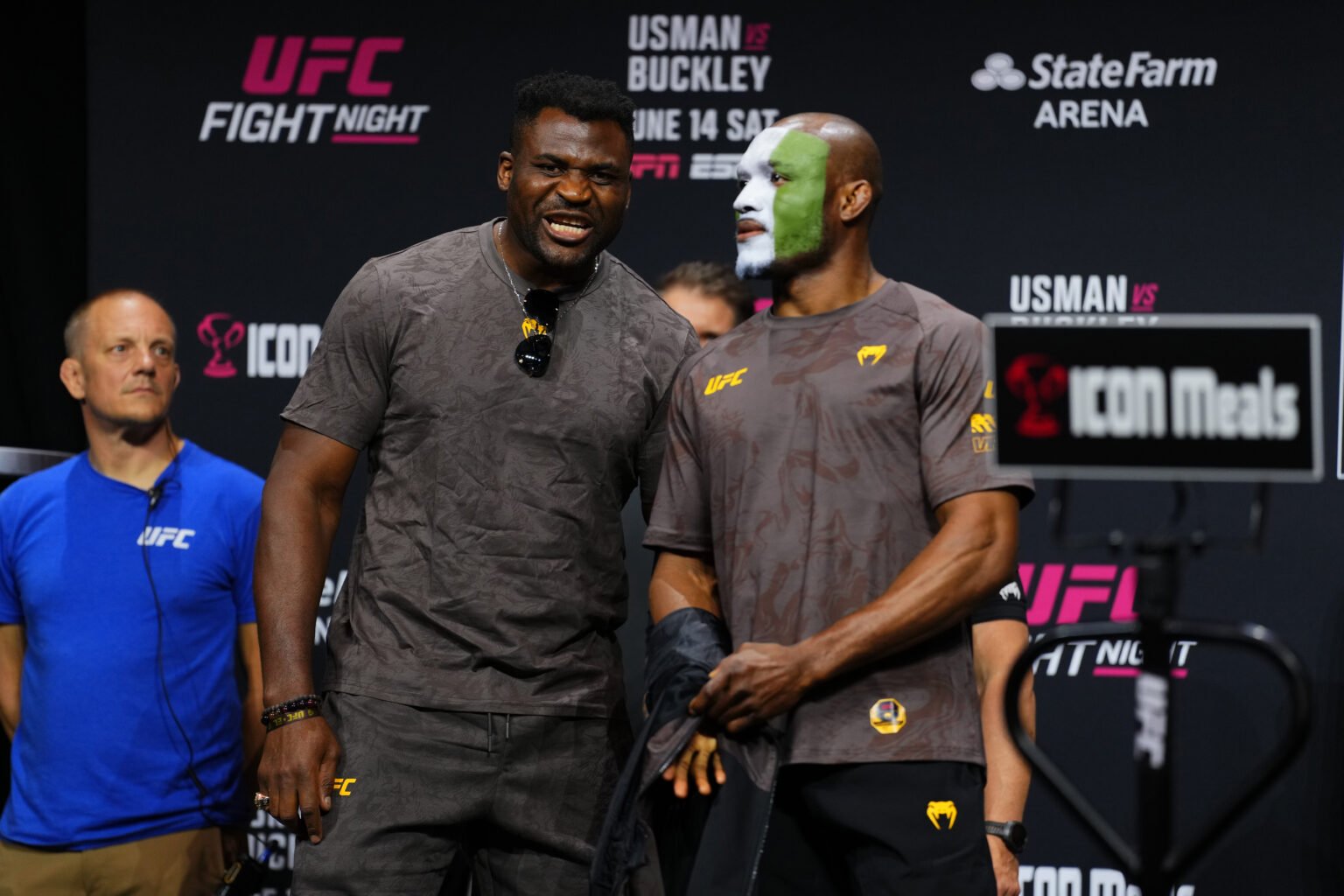It is highly unlikely that Francis Ngannou will ever return to the UFC. However, for a brief period, the former heavyweight champion garnered significant attention after his head coach suggested on a podcast that “The Predator” might be open to the idea of coming back.
While his coach`s remarks were reportedly exaggerated, the mere mention of Ngannou`s potential return sparked excitement from the current UFC heavyweight titleholder, Jon Jones, about a possible matchup. Unless there`s a dramatic shift, Ngannou remains primarily focused on his future plans with the PFL and his ambitions in professional boxing – opportunities he felt were not available to him under the UFC banner.
But with more than two years having passed since he became a free agent, did Ngannou actually make a mistake by departing the UFC to sign a highly profitable contract with the PFL?
“You`d have to define what a mistake is,” stated UFC legend Matt Brown during a recent episode of The Fighter vs. The Writer. “Financially, he absolutely did not make a mistake. Fighting Tyson Fury and Anthony Joshua, regardless of winning or losing, earned him an enormous amount of money that he simply would not have made in the UFC.”
Brown elaborated on the legacy aspect: “In terms of legacy, I think he`s already becoming less relevant in the heavyweight division within MMA. Legacy-wise, I believe it significantly harmed his standing. Had he won those boxing fights, that would have undoubtedly boosted his legacy tremendously. For instance, after his first bout with Tyson Fury, which many of us felt he won – it was close and debatable, but I`d argue he probably took it – I don`t think anyone was calling it a bad move at that point.”
Ngannou successfully knocked down Fury but ultimately lost the decision. In his subsequent boxing appearance, Ngannou suffered a brutal knockout loss against Anthony Joshua. He has since returned to the PFL, where he defeated Renan Ferreira in his only fight for the promotion to date.
Brown posits that the debate surrounding Ngannou`s decision is largely driven by hindsight, knowing the outcomes of his high-profile boxing contests.
“It was *after* he lost [the boxing matches] that people started asking if it was a mistake, and now the UFC seems to have moved on,” Brown commented. “However, he earned more from those two matches than he likely would have over the next ten years fighting in the UFC. Was it a mistake in that sense? No. But his legacy will suffer. He won`t be a regular part of conversations about the greatest heavyweights ever, period.”
He added, “Losing those two boxing matches was probably the most detrimental thing for him. It definitely `humanized` him quite a bit.”
As painful as those losses were, Brown argues that Ngannou is still in an excellent financial position because the earnings from those two boxing matches likely surpassed his potential career earnings if he had remained solely in the UFC.
“Financially, again, he profited greatly,” Brown reiterated. “He did very well. Ultimately, this is `prize fighting` – and he secured the biggest prize [money]. Who are we to claim he made a mistake? It really depends on what you prioritize.”
“Look, he made his money. The bottom line is, if he is satisfied with that, then good for him. I think it`s difficult for us to definitively label it a mistake.”
While his earnings in the boxing ring were undoubtedly much higher than in MMA, Ngannou would still have commanded significant paydays in the UFC, particularly if a fight against someone like Jon Jones had materialized.
However, Brown suggests that the principle behind the contract negotiations, and the control Ngannou now has over his career, might have been more important to him than the sheer amount of money itself.
“I`m going to speculate that Francis, viewing this as a shrewd businessman, would look at the business side and object like this: `Okay, this hypothetical fight generates $100 million. I receive $3 million, and the UFC keeps $97 million. In boxing, I receive $50 million, and they receive $50 million.` He`s likely thinking, `Why am I shortchanging myself here?`” Brown offered as a possible internal monologue for Ngannou.
“Regardless of whether $50 million or $3 million is sufficient to live comfortably for the rest of your life,” Brown continued, “there`s a feeling of being somewhat exploited. I honestly believe that sense of being used, of being merely a `cog in the wheel` rather than a driving force, played a more significant role than him simply needing that much money.”
In the end, Brown believes that when examining Ngannou`s choices – leaving the UFC, signing with the PFL, and moving into boxing – two things can simultaneously be true.
On one hand, there`s no denying he secured the largest possible paydays with his fights against Fury and Joshua, regardless of their outcomes. On the other hand, it`s equally undeniable that his prominence and relevance in the sport have dramatically changed now that he is no longer in the UFC and is unlikely ever to compete there again.
“Does Francis even care [about the legacy/relevancy]? Because I can tell you, if I were in that situation with $30 million, you probably wouldn`t hear from me again either!” Brown said with a laugh. “He might actually prefer it that way.”
Brown concluded, “Frankly, in MMA circles at this point, few people are talking about Francis or his fighting. I`m not even sure how much interest there is in his boxing career anymore. But he likely earned more than almost any [MMA fighter] in history, perhaps with the exception of Conor [McGregor].”

